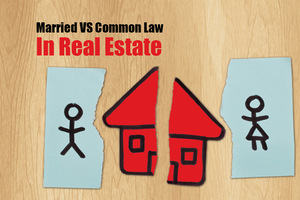Should I Stay or Should I Go Now?! What happens when a common law relationship breaks down and one party wants to sell the home and the other party is happy living in the house and often is not making much of a contribution to the upkeep?
 The party that wants to sell can sever a joint tenancy by registering a transfer to themselves. Thus converting the property to tenants in common. He or she can also force the sale of the property by commencing an “ Action for Partitionâ€. Parties are not locked into their properties. The agent can advise the party to seek legal advice on a partition action. Usually, a letter from the selling party’s lawyer will get the desired results of getting the property listed. However, if an action is required agents must allow sufficient time to have the action heard. Talk to the selling party’s lawyer, months are quite often required, but the courts will order the sale and even dispense with the signature of the non co-operating party if necessary.
If you have any questions or concerns, please feel free to contact us at your convenience. If you have any suggestions for future topics please let us know.
Prepared by Don Travers, Solicitor with Paquette & Travers
Contact toll free: 1-877-744-2281
Online: www.paquettetravers.com




